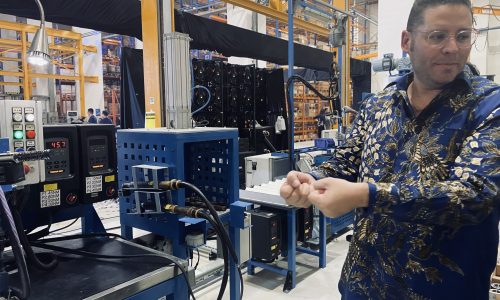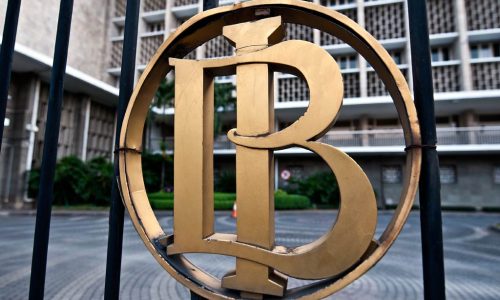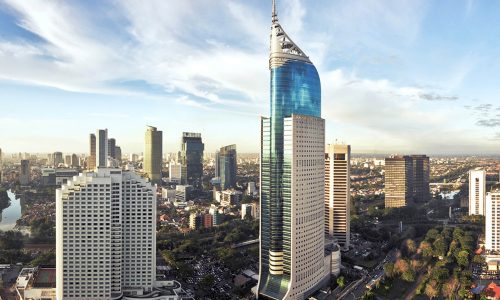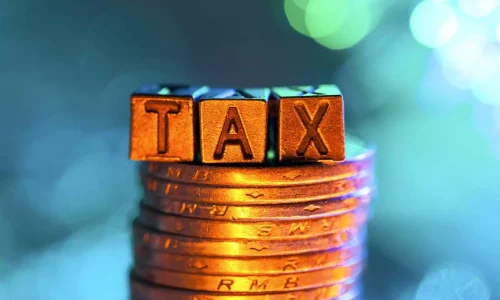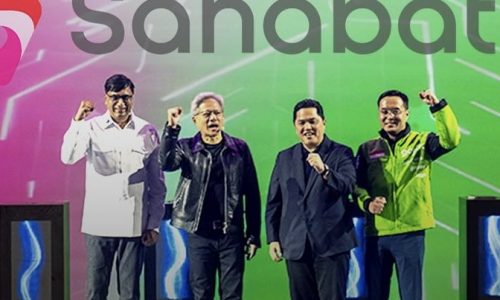Following the success of nickel ores export ban and the development of its downstream industry, the government will apply the same prohibition to ores such as copper, bauxite and tins.
Indonesian President Joko “Jokowi” Widodo plans to ban the export of crude bauxite, copper and tins by the year 2022, according to Nurul Ichwan, Deputy Chairman for Investment Planning at the Investment Coordinating Board (BKPM).
“The President attended a coordinating meeting on April 5, 2022, and stated for the umpteenth time that we would ban the export of raw materials soon. However, no regulation has been issued yet,” he told Indonesia Business Post on August 5, 2022.
As a result of Law No. 3/2020 on Mineral and Coal Mining, all raw minerals exports should be halted by June 2023 at the very least.
Waiting for the right timing
As confirmed by Ridwan Djamaludin, Director General of Coal and Minerals at the Ministry of Energy and Mineral Resources, the industry should wait for the president to determine the exact timing. The president has delivered the principal’s statement, and the related ministries will follow up on it.
“I do not know the exact timing, but we should be able to tell you shortly,” he added.
He hoped that business players would be aware of this policy and anticipate it.
“We will take the example of 99.9% of our exports of tin ingots as an example. However, it remains essential to process it further downstream to provide Indonesia with materials and more jobs,” Djamaludin said.
An economist at Gadjah Mada University (UGM) in Yogyakarta, Fahmi Radhi, suggested that President Widodo take a firm action in prohibiting the export of other raw minerals following the success of the ban on nickel ore exports. On January 1, 2020, Widodo ordered the ban of nickel ores export.
“In my opinion, Jokowi should ban not only the export of nickel, but also bauxite, tins and copper so they can be processed in the downstream industry at home and contribute significantly to the economy,” he said.
As for how soon the president will start the ban of other minerals, Radhi said “Only Jokowi and God know”. Based on the previous experiences, foreign investors still flooded into the country and developed nickel smelter projects that totaled billions of dollars.
Lesson learned from nickel ban
Ichwan said Indonesia has learned from the development of the downstream nickel industry, which was regarded as impossible by many businessmen, including nickel ore exporters. The downstream nickel industry is thriving and is developing rapidly due to unstable economic conditions that tend to recession across developed and developing nations.
All investments are requested to return home. By increasing its interest rate, the US, for example, has asked its investors to return home. By doing so, they hope the money will support the US economy by flowing back into the country.
The Indonesian government is seeking a loophole that will enable it to compete internationally in a situation where countries tend to look inward. The answer, it turns out, is the development of downstream mineral industries. Indonesia has a comparative advantage rather than a competitive advantage due to minerals.
“When discussing competitive advantage, advanced nations have more capabilities. Yet when it comes to comparative advantage, especially natural base comparative advantages, they have few choices,” Ichwan said.
For example, the battery accounts for approximately 40% of the total cost in the electric vehicle (EV) industry. It consists of lithium, cobalt, manganese and nickel. All of these minerals are easily available in Indonesia except lithium. Not many countries have nickels as raw materials for batteries.
“Nickels are Indonesia’s comparative advantage, so investors from other countries will visit Indonesia and bring the industry with them,” said Ichwan.
Other countries will develop the downstream industry if Indonesia does not establish its own. Consequently, these countries are the ones that secure the added value rather than Indonesia, although Indonesia owns the minerals resources.
“So, Indonesia has a considerable advantage in the current economic climate due to the availability of such raw materials. It provides a significant bargaining position,” Ichwan said.
Make use of the available minerals
The nations with the most advanced technology tend to develop EV for either eco-friendly or technological reasons. Indonesia will offer them the opportunity to build their electric car industry here because it is close to nickel mining, smelters, precursor cathode manufacturing, recycling and battery manufacturing. It is possible to develop all of these industries here in Indonesia. Due to this, LG and its consortium entered the Indonesian market and grew upstream to downstream.
There are currently 14 nickel smelter projects in Indonesia. As of 2020, PT Virtue Dragon Nickel Industry has been running a nickel smelter in Konawe, Southeast Sulawesi, with a total investment of IDR30.3 trillion. Eleven additional nickel smelters are expected to be operational in 2023 with a total investment of IDR51.7 trillion. PT Sungai Raya Nickel Alloy Indonesia, also in Southeast Sulawesi, will own the last nickel smelter and run it in 2024, costing approximately IDR21.3 trillion.
Ichwan said the success of nickel smelters could be replicated for other minerals, such as copper and bauxite, as it is a natural resource-based project and Indonesia has strength in those areas. The problem is in the absence of development of downstream industries and gradual production of technology.
Without collaboration with other parties, Indonesia may run out of mineral resources or raw materials before it has the technology. Indonesia should cooperate with other parties and could not force foreign companies to build the industry here. As Indonesia has exported all its mineral sources abroad, no more minerals will be available when it develops the downstream sector.
“This is our loss,” Ichwan said.
Therefore, the president urged the development of downstream industries for tin, bauxite and copper. Developing the downstream sector will provide Indonesia with substantial employment opportunities.
The ban on exporting raw minerals encourages foreign investors to invest in Indonesia, as they are compelled to do so because they have no choice but to invest in Indonesia.
Copper smelters industry
Djamaludin said that for copper, the government has a road map on developing the downstream industry by first, increase copper reserve resilience and the optimization of ore production. In order to reach this target, the government will increase copper exploration activities, convert the resource into reserves and relax the limited copper exports in order to increase state revenues.
Second, the government will improve, optimize the processing and purification industry by speeding up the construction of copper processing and refining plants, issue policies that supports the development of processing and refining industry and the construction of anode sludge purification plant.
Third, the government will develop fabrication, manufacturing and local content of the industry by mapping copper industry fabrication, developing copper derivative industry, protect copper derivative industry , develop copper industry as raw materials for electric vehicles battery .
Fourth, the optimization of domestic product use and launching of recycling system.
Opportunities for copper smelters
According to the Energy and Mineral Resources Ministry data, Indonesia is home to two copper cathode factories, namely PT Smelting and PT Batutua Tembaga Raya.
Approximately 1.7 million tons of copper concentrate can be processed into cathodes at the smelter owned by gold and copper mining giant PT Freeport Indonesia, according to Ichwan. The smelter development is estimated to cost roughly US$3 billion and will be funded by loans and equity in the company. By June 2022, the smelter has achieved 34.9% progress, according to the energy ministry data.
The construction of the Freeport smelter provides employment opportunities and contributes to developing the copper industry ecosystem, according to Ichwan.
PT Amman Mineral Nusa Tenggara is developing copper smelters in West Nusa Tenggara province. By 2022, the smelter will produce 250,000 tons of copper cathode, one million tons of sulfuric acid, 0.5 million tons of slag and 60,000 tons of gypsum. By June 2022, the company’s smelter has achieved 35% progress, according to the energy ministry data.
Only two copper smelters are currently under development in Indonesia, compared to 14 nickel smelters. According to Ichwan, the fact that only two copper smelters are being developed in Indonesia does not necessarily mean foreign investors are not interested in investing in copper smelters.
Several large companies control the global market for copper and gold derivative products from upstream to downstream, including companies like Freeport and Amman Mineral. Thus, the companies’ production capacity and control of the market are directly proportional.
“For example, if you have 100 markets, you must produce 200 products. The companies’ market will absorb these 200 products. We can therefore describe it as a captive market,” Ichwan said, adding that few people control the copper market, and other copper business players have difficulty entering.
At the same time, Indonesia still has 856 million proven reserves of copper. Ichwan said that Indonesia needs to design regulations in the copper market controlled by several players. The companies which control the market should buy copper concentrates from Indonesian copper mining companies.
“The focus should be on not establishing new markets to compete with existing businesses. In addition, dominant players in the market must design how to collaborate with local players,” he said, adding that these players can off-take or purchase copper concentrates from local copper mining companies and individual miners. It is, therefore, possible for local players to collaborate with copper smelter companies to supply copper concentrates.
According to Ichwan, Indonesia hopes that by banning the export of copper concentrates, foreign and international companies will invest in Indonesia and develop copper derivative products. So far, several Japanese companies have established factories producing copper derivative products in Indonesia.
“The downstream copper industry is showing signs of development, albeit at a slower pace than the downstream nickel industry,” he noted.
The ongoing bauxite projects
There are currently five bauxite projects underway in Indonesia. Two alumina refineries have been operating, namely: PT Well Harvest Winning (Smelter Grade Alumina Products) and PT Indonesia Chemical Alumina (Chemical Grade Alumina Products). In addition, there is a total investment of IDR73.3 trillion in five bauxite smelter projects in West Kalimantan:
1. PT Borneo Alumina Indonesia in Mempawah
2. PT Kalbar Bumi Perkasa in Sanggau,
3. PT Dinamika Sejahtera Mandiri in Sanggau
4. PT Laman Mining in Ketapang
5. PT Well Harvest Winning Alumina Refinery (Expansion) in Kendawangan
Djamaludin stated in the development of bauxite and aluminum roadmap, the government would first increase bauxite reserve resilience and optimize ore production. To accomplish this, the government needs to increase bauxite exploration activities and convert more resources into reserves.
Secondly, the government will optimize and improve the metal processing and purification industry by expanding alumina smelters to process domestic bauxite and increase the absorption of alumina products such as smelter grade alumina and commercial arrangements, as well as importing raw materials to meet aluminum raw material needs.
The third step is to develop the aluminum intermediate products industry for battery cells, electric vehicles, NRE (new and renewable energy) and other technologies.
The final step is optimizing domestic consumption and introducing a recycling system. Automobiles, construction, cables, and aircraft will be among the industries that consume aluminum products domestically. As part of this initiative, aluminum recycling systems will be developed through scrap collection, sorting, processing, and the development of secondary aluminum industries.
Environmentally friendly compared to plastic
Ichwan stated that the bauxite would be converted into aluminum, which has many applications, and that Indonesia is the market for it. The government is optimistic about bauxite because aluminum is an environmentally friendly alternative to plastic.
“In the United Arab Emirates, people do not use plastic for food packaging. They use cleaner aluminum with high quality and degradability. Plastic is difficult to degrade,” he added.
It indicates a growing awareness of the need for a greener earth, technology, and environmentally friendly raw materials. Aluminum is the product of the future. It is already possible for Indonesia to use aluminum as an alternative to plastic if the government decides to stop plastic consumption in the country.
Since Indonesia owns bauxite, it can participate in the global aluminum ecosystem and supply chain. Among these applications are packaging for food and alloying for machine parts, car bodies, etc.



